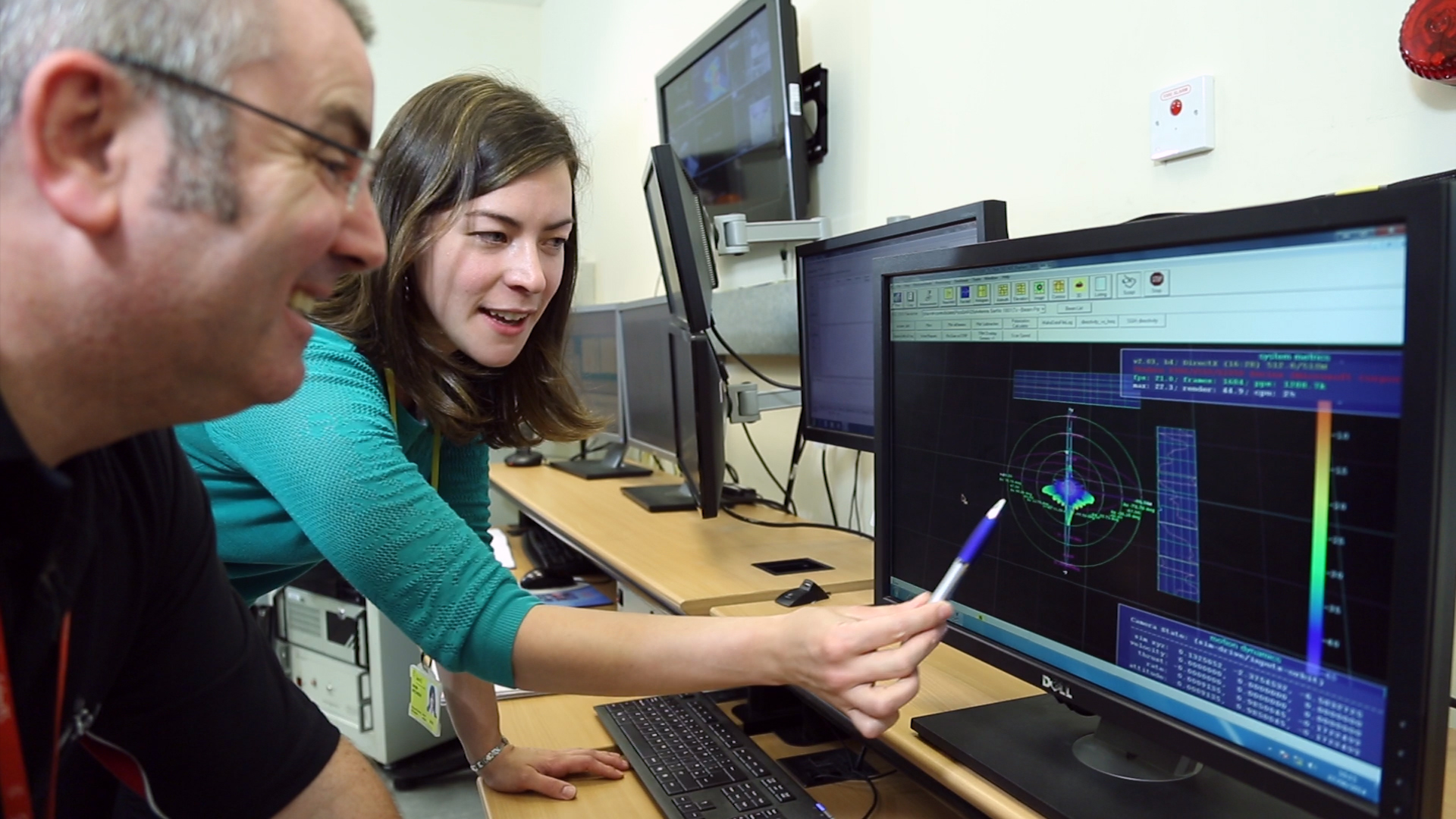
Engineering has a lot of interesting careers within it, but when I graduated with an Electronics degree and was looking for my first role, I struggled to find any positions that reflected the same quality of innovation that I had enjoyed on my course. Nor could I find successful engineers, visible in the public sphere, to give me motivation to pursue this career.
I’ve often wondered why there aren’t more compelling role models in the field of engineering and innovation. While we can all name historic engineers such as Alexander Graham Bell, Isambard Kingdom Brunel or John Logie Baird, how many schoolchildren can name an engineer who is still alive and working in the field? Where are the modern ‘Brian Cox’ style movers and shakers that people can look to for inspiration?
But, once I had entered the industry, and was surrounded by other, enthusiastic engineers all day every day, I began to see more and more just how many people are out there doing fascinating things: from landing Rovers on Mars, to creating plug-and-play electronics kits for kids to completely rethinking the design of the hand-dryer.
If I talk to other engineers about what they’re working on, their eyes light up when they learn that I’m an engineer too and they will explain what they’re working on with a lot of passion. But if they’re speaking to someone outside the discipline, they will often gloss over the details of their jobs without conveying the same sense of excitement because ‘I don’t want to bore you…’
As engineers we need to get better at explaining what makes engineering so exciting. I work for Finmeccanica – Selex ES on laser warning systems that can detect laser beams from all angles in split seconds, and warn the aircraft, potentially saving lives. I think it’s thrilling! There are engineers working on fascinating projects right now, but we’re just not hearing about them. Engineers aren’t the only ones who need to get better at explaining to audiences why it is such a cool profession - we need help from the rest of the industry too. The industry as a whole needs to capture this information from their engineering talent, so that it is properly reflected in the job specifications that they create.
Engineering jobs are interesting and they’re fun, but I only really discovered this after working in the industry –there was nothing to suggest this in the job specifications I saw advertised! The engineering I do today is high-tech, innovative, cutting edge; nothing like the hard hat image of engineering which I typically see in the media, full of people in grease-smeared overalls. So my direct experience of engineering is quite different to the perception I had before entering the industry. It is a broad discipline which is hugely varied- not just between civil, mechanical and electronic engineers, but even within these divisions there are systems engineers, design engineers, production engineers, etc. I work in design, which allows to me come up with new ideas and work out how to apply these in the most practical way. That’s fun, challenging and different every day and I don’t know many careers who offer this kind of absorbing work, yet these roles still aren’t being publicised properly outside of the industry.
I think the main reason more people don’t choose to go into engineering is that they don’t know what it really means and they can’t imagine what it would feel like to work as an engineer. Added to this is the fact that engineering careers aren’t often highlighted as a career option to most people. They might be good at physics and maths, but their educators (both parents and teachers) often do little encourage them to consider engineering, simply because it isn’t on their own radar.
When I go into schools to talk about what I do, I try to talk to the teachers as well as the students, and help  them understand that I don’t work on a factory floor: my job at Finmeccanica – Selex ES is a varied and creative role, in a dynamic high-tech industry. Engineering has the scope to directly change the world around us, and allows us to design solutions that can make an impact on everyone’s lives . That is remarkable in itself and we need to get better at tapping into the excitement that follows once you realise that.
them understand that I don’t work on a factory floor: my job at Finmeccanica – Selex ES is a varied and creative role, in a dynamic high-tech industry. Engineering has the scope to directly change the world around us, and allows us to design solutions that can make an impact on everyone’s lives . That is remarkable in itself and we need to get better at tapping into the excitement that follows once you realise that.
Watch Naomi's video and find out more about careers in engineering. Read more about The Institution of Engineering and Technology Young Woman Engineer of the Year Award.
3 comments
Comment by JJ posted on
I believe engineering isn't seen as an option for many people because, as you say, they don't know what it is, however, I think I know the reasoning for that. In Europe, as far as I'm told, an Engineering career is held in high regard; on a similar level to doctors etc...and the reason for that is that the title of 'engineer' is protected for those with the academic and vocational qualifications required.
It's a very different story in this country though; 'engineers' pass through our lives every day, whether it's the gas man who fixes our boiler or someone who comes round to plug in the router when you get a new broadband connection. These people's time and jobs are, of course, just as valuable as anyone else's, but they're not engineers in the sense that we are; they haven't spent 3, 4, 5 or more years at university, they haven't then pushed their career for a further 4 or 5 years to achieve chartership with an institution, and they don't work on the cutting edge technology that's currently changing the world. These aren't seen as desirable jobs, but are associated with the same job title, and so we're thrown in the same basket.
Also, as a side note, I'd also say that in the modern world, engineering is less focused on individuals; it's highly collaborative, so you don't get the individuals who stick out and inspire. You do get companies that grab people's interest and imagination, but again, people don't realise it's the engineering that's achieved that.
Comment by Naomi Mitchison posted on
I agree with your assessment that an engineering career is held in higher regard elsewhere in Europe, Germany being a famous example, and I’m sure we would get more students choosing it as a career if it were seen the same way in the UK. However, I don’t think that protecting the title of engineer is the best way to change perceptions – the word has been in common use for so long, and has such strong associations with engines, etc, that trying to reappropriate the word for our own use is always going to be an uphill struggle. What we would really need is a new word that can carry any connotations we choose to associate with it, but that runs the risk of seeming a bit desperate.
I feel the most promising route would be to promote Chartership as the gold standard in engineering, rather than trying to change the definition of ‘engineering’ in the vocabulary of the general public. Then all it would take is to say ‘I’m a chartered engineer’ for people to understand that your work goes beyond maintaining boilers or rebooting laptops.
We all know that a degree in medicine does not automatically make one a doctor: doctors need a degree, but also practical experience, they need to be registered with the GMC, and they can be ‘struck off’ if they are found to pose a risk. Surely we can build on this analogy and help people transpose it onto the engineering profession? A chartered engineer needs academic qualifications (or equivalent) and professional experience, and every engineer signs up to a code of conduct when they apply for chartership. In this way we can promote the role of chartership as providing accountability and protection of the public, rather than just a tool for improving the social standing of engineers. The general public has already heard of chartered accountants and chartered surveyors, where a similar principle applies.
But as I mentioned in the article, I think we can all help in our way when we engage with people outside the world of engineering: we could each spend a bit more time explaining to people what we actually do, rather than expect the word ‘engineer’ to do the work for us. ‘I’m an engineer, I design lasers’ sounds pretty exciting no matter what your perception of engineers is. People’s perceptions of engineers are based on their experiences dealing with them, so we shouldn’t pass up opportunities to improve our image!
Same goes for your point about engineering companies. You’re absolutely right; engineering is collaborative, and credit should go to the whole team. However, I’m sure we’ve all worked with some engineers who are better at explaining difficult concepts and enthusing the team than others, and it would be great to bring these individuals out into the public and ‘show them off’, encouraging them to use their personalities to sell engineering. But there’s still so much that everyone on the project can do: what if we each spent a bit more time helping explain the engineering behind the technology that people use or see every day?
Comment by Naomi FAGBENRO posted on
I would suggest the title " professional engineer ' certified engineer ' technical innovators' technical designers and planners' . I think we need to define engineers in a wider sense using the functions of what they do as descriptive in titles that would provide better understanding to the emerging young generation!